I have an affiliate relationship with Bookshop.org and Malaprop's Bookstore in beautiful Asheville, NC. I will earn a small commission at no additional cost to you if you purchase merchandise through links on my site. Read more on my affiliate page.
My Synopsis:
Author Jesmyn Ward lost five young men, including her brother, within five years. In an effort to deal with her unimaginable grief, she wrote a memoir about her own life growing up Black and poor in Mississippi, as well as brief biographies of each man and his tragic death.
My Review:
As I read this, I periodically thought of that adage stating that to be a writer, “You simply sit down at the typewriter, open your veins, and bleed” (I’m going to attribute this to Walter “Red” Smith, citing Quote Investigator). Ms. Ward’s pain and grief comes through in these pages almost viscerally.
Growing up poor is hard enough. But when you’re Black and poor, especially in the American South, especially in Mississippi, the cards are truly stacked against you. You can’t expect mercy from a court system that seems to believe your very existence is a crime. You can’t expect help from your White neighbors, who view you with suspicion. The few jobs in town inevitably go to White people. Layoffs affect the Black community first. Towns allocate funds to improve the White parts of town while the Black parts of town fall further and further into disrepair. This is the reality that Ms. Ward, her family, her friends, and countless others in similar situations live every day. And it takes its toll.
“One Fourth of July, [Rog] and his cousins twisted firecrackers together in a sulfurous bunch, put the firecrackers in mailboxes, and lit them. The mailboxes exploded. Someone called the police. When the police arrived, they told the kids that it was a federal offense to tamper with the mail, and they took the other two boys to a juvenile detention facility. This is how silly pranks by Black kids are handled in the South.”
The young men Ms. Ward writes about die in several different ways, but race and poverty play a role in all of them. A sense of hopelessness leads to suicide. Using drugs to beat back that same sense of hopelessness leads to an accidental overdose. Dangerous roads aren’t fixed because the town doesn’t seem to care about conditions in the Black part of town. It’s unrelenting.
But some people keep trying. Mothers keep doing their damnedest for their children. They swallow their pride, work the menial jobs, sign up for whatever assistance they can find, and keep their children fed. But keeping their children fed isn’t the same as having the opportunity to give their children more. Ms. Ward’s mother worked as a maid for a family for years to keep Jesmyn’s scholarship to a private school. But so many don’t even get that option. It’s a vicious, vicious cycle and the system is set up so that it’s only the rare, fortunate person who can break out of it.
“I knew the boys in my first novel, which I was writing at that time, weren’t as raw as they could be, weren’t real. I knew they were failing as characters because I wasn’t pushing them to assume the reality that my real-life boys, Demond among them, experienced every day. I loved them too much: as an author, I was a benevolent God. I protected them from death, from drug addiction, from needlessly harsh sentences in jail for doing stupid, juvenile things like stealing four-wheel ATVs. All of the young Black men in my life, in my community, had been prey to these things in real life, and yet in the lives I imagined for them, I avoided the truth. I couldn’t figure out how to love my characters less. How to look squarely at what was happening to the young Black people I knew in the South, and to write honestly about that. How to be an Old Testament God.”
The structure of the book is set up so that the reader moves forward through Ms. Ward’s own life and, in alternating chapters, backward through the deaths of her friends and brother. It all culminates with her brother’s death, obviously the one that hurt the most. In trying to deal with her own grief, she wishes she had words to soothe the sisters of the other young men.
“What I meant to say was this: You will always love him. He will always love you. Even though he is not here, he was here, and no one can change that. No one can take that away from you. If energy is neither created nor destroyed, and if your brother was here with his, his humor, his kindness, his hopes, doesn’t this mean that what he was still exists somewhere, even if it’s not here? Doesn’t it?”
I feel like I’m flailing around in this review, trying to make sense of my own thoughts, but I hope that I’m conveying that this book is powerful, important, and gut-wrenching. It’s not an easy read by any means. But if we as a country, as humans, are ever going to do better, we have to begin by walking in each other’s shoes. This is a good place to start.
Similar Books:
If you liked Men We Reaped, you might also like my reviews of
- Our Time Is Now: Power, Purpose, and the Fight for a Fair America by Stacey Abrams
- The Color Purple by Alice Walker
- Their Eyes Were Watching God by Zora Neale Hurston
Reading Challenges:
Purchase:
Buy Men We Reaped from Malaprop’s Bookstore in beautiful Asheville, NC or

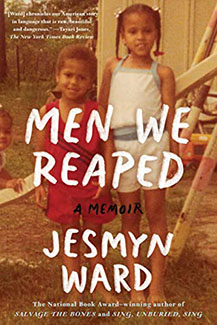


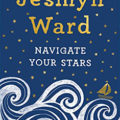
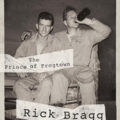
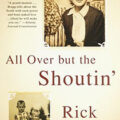
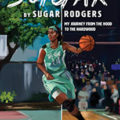
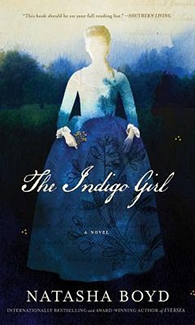

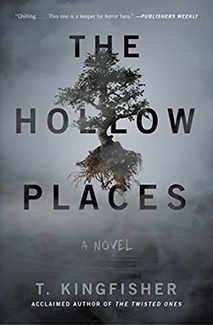
7 Comments
I thought your review showed that this was a powerful book! The quotes you used to illustrate that were really great.
Thanks!
I’m ashamed to say I haven’t read any of Jesmyn Ward’s books yet. I can see that this would be a hard book to read and review, but you made me want to read it!
This was the first of her books that I’ve read as well, but I have had it in the back of my mind for my Southern lit challenge all year. She’s a powerful writer so I’ll be checking out her back list as well.
The quote from Walter “Red” Smith is powerful, and the book seems to be a mirror: a painful but important read. If reading this is so difficult, living it/ writing it out must take it to another level. Thank you for reminding how important it is to have empathy.
This sounds like a hard read, but an important one. Thanks for the review.
This sounds really intense, well timed, and like a book many should read. It’s so interesting that the author realized she was protecting her fictional characters so that they could avoid the life her real family and friends experience.